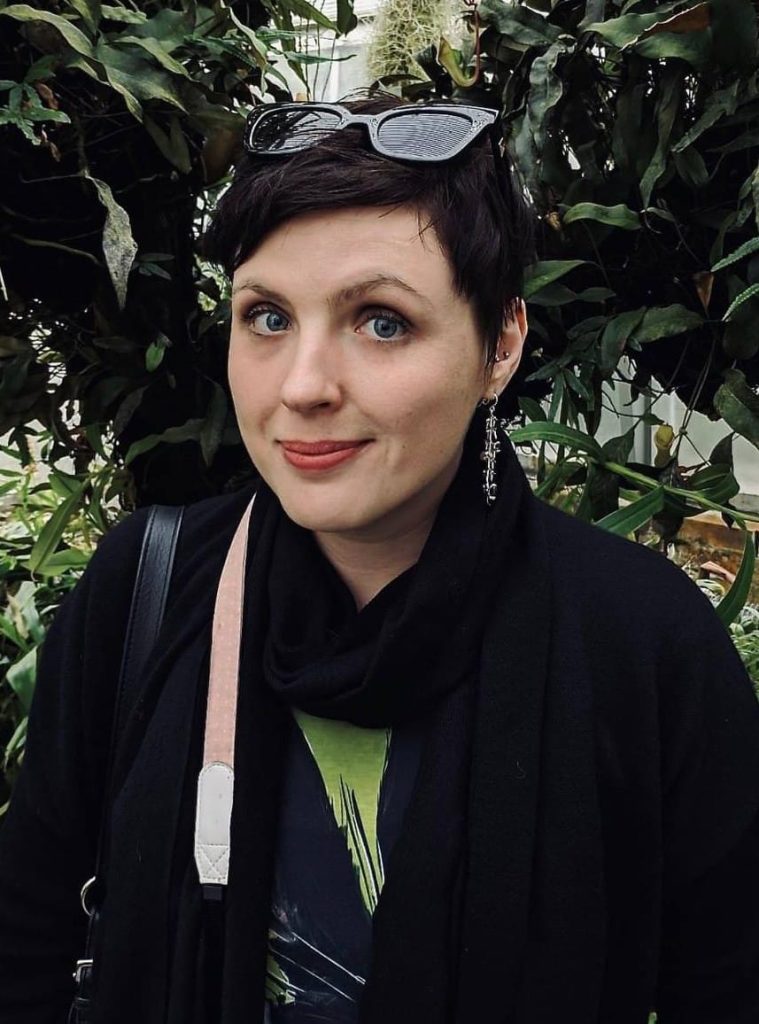Thriving on a Varied Practice: Interview with Madeleine Miller
Madeleine Miller is a grade 2 CPS prosecutor and tenant at Deka, a chambers specialising in common law practice. Perusing her CV, I notice that she transitioned to a career in law after completing her Masters in German and Classics at the University of Edinburgh. So, I hope that she will forgive me for opening our interview by asking what might just be the most hackneyed question in the book: why did she decide to pursue a career in law?

Miller acknowledges the cliché with good grace. It is, after all, a question she’s been asked a lot, though it pops up less often nowadays than it used to. Miller suggests that this reflects a continuing change in attitudes within the legal community. Whilst generations of lawyers arrived at the profession via alternate paths, there’s a growing recognition that you don’t need to have been born wanting to be a barrister in order to be a strong advocate. Even in the years since Miller was called to the bar in 2019, it has become increasingly common for people to come to law from a different career path or academic background, bringing a wealth of valuable perspectives and transferrable skills with them. ‘I think that that’s something that the legal profession is really good for’, Miller states.
‘It recognises that previous experience, whether it stems from real life or a prior career, is a strength rather than a weakness’.
Madeleine Miller, Deka Chambers

Having a life before law has definitely been an asset for Miller, though she jokes that her knowledge of Latin has proved to be less useful in practice than she’d initially hoped. Her early university studies stemmed purely from a love of the subject matter rather than a calculated career plan, which she looks back on as hugely beneficial. However, after four years of university, Miller found herself thinking more and more about a career in law. She enrolled on the GDL and then the BPTC (now the BVS) at City, which allowed her to gain a lot of legal know-how quickly, whilst starting to build a career. Whilst these experiences only cemented her desire to be a barrister, they didn’t help her answer one pressing question: what area did she want to practice in?
Some students arrived at the GDL already knowing exactly what kind of barrister they wanted to be, whilst others in Miller’s cohort naturally arrived at a chosen specialism as they progressed through their studies and gained more legal experience. For Miller, however, the more she learned about law, the harder it was to settle on just one area.
The solution became apparent when Miller did a two-day mini pupillage at Deka, a chambers specialising across areas of common law practice. The experience proved to be an eye opener for Miller, who recounts how she sat in on a criminal case on day one before switching to watch two civil cases the next day. Maybe, Miller realised, she didn’t have to restrict herself to just one area. ‘It gave me a really good sense of the variety of work’, she states, ‘it made perfect sense to me that you didn’t have to cut yourself off too early from a kind of law that you might really love’. Just as importantly, however, it gave her a good sense of the people. ‘I really got on with everyone there. Everybody was really helpful and friendly, and they went out of their way to be generous with their time to me. I thought ‘this seems like a really supportive environment’.
Miller saw Deka as a place where she could fit in. Deka, it appears, agreed, offering her pupillage. Miller looks back on the application process with a mix of fondness and remembered trepidation. ‘I remember coming out of both rounds of my interviews thinking that it was absolutely terrifying, because I cared so much about the outcome. Still, I also remember sitting in there and thinking ‘I like these people’. I could tell that the process was objective. Obviously, it was nerve-wracking, but I felt like I was put at ease and actually given an opportunity to do my best’.
Miller found pupillage at Deka every bit as supportive and fulfilling as she hoped it would be, though she acknowledges that the stress of pupillage still lived up to its reputation. Even if it can be hard to tell what a set is like when you’re applying, she suggests that you can still gain valuable insight from what they choose to prioritise on their website, and the message they want to get across. The interview process can also be telling, as it essentially gives you the opportunity to interview the chambers just as much as they are interviewing you. ‘Just remember’, Miller tells me:
‘…during an interview you are speaking to a bunch of barristers. They all have different reasons for wanting to do this job, and they all understand what that range of reasons are. As long as you are authentic and have a genuine reason for wanting to do this, somebody is going to understand that, and that’s a lot more persuasive than something that sounds like it’s come straight out of a book’.
Prior to starting pupillage, Miller worked as an employment caseworker for a trade union and as a paralegal on the Bindmans Grenfell Inquiry Team. However, she also spent the better part of a year working in telephone sales, with her employer hoping that her knowledge of German would help them break into the European market. I quip that I can’t imagine a better way to gain experience in advocacy. Germany, it seems, is very resistant to cold call culture. Miller, however, stresses that all experience is valuable, even if you worry that the connection to law is not immediately apparent or that it won’t look impressive enough on your CV.
‘Chambers aren’t just looking for people who have only ever done legal jobs. More and more sets are committed to diversity, equality and social mobility and they recognise that sometimes people just need to work. That doesn’t mean that their experience doesn’t bring anything to the table. We aren’t looking for you to be a barrister already, or to be an expert in every single area we practice in. We’re looking for that interest and that flexibility that says you’ll be a good fit’.

Miller credits her own breadth of experience with helping her maintain perspective. Her practice is highly varied, encompassing family, criminal and civil branches of law such as personal injury. She’s also got a growing practice in police law, and in representing various public bodies in applications for civil orders. When I ask her if it ever feels overwhelming, she states that a ‘lot of it fits really neatly together’, like different sides of the same coin. There are occasions when Miller gets handed something in an area of law that she isn’t particularly familiar with, which can be daunting. However, it gives her a chance to experience a bit of everything in a way that she wouldn’t be able to at a highly specialised set.
‘You are juggling multiple areas of law, multiple sets of procedural rules, multiple sets of authorities. It’s an intellectual challenge from a personal perspective but it’s also really stimulating. I really enjoy all of the areas I practice in. I still don’t have a favourite, and at Deka I’m going to be able to continue doing all of them for as long as I want. We’re allowed to specialise after three years if we choose to, and some people do, but there’s no pressure. It’s the opposite, actually, we’re encouraged to shape our practice in whatever way we want. I think a common law pupillage is fantastic for people who don’t feel a strong need to practice in just one thing’.
Deka is hosting an online pupillage event on Monday the 27th. The evening promises a mixed panel of speakers, ranging from Miller herself, as a recent tenant, to barristers with 15 plus years of practice under their belts, to members of Deka’s pupillage committee. So, who should consider tuning in? Anyone who is interested in a common law practice or even just pupillage in general, Miller suggests. ‘It’s a friendly way to find out about the process’.

‘Our view is that as long as you genuinely want to do common law and are happy to get stuck in, then this might be the right path for you. It’s ok if you already have a specialism because that experience can be a real addition. But if you’re keen to try out different kinds of advocacy, then a common law practice might be for you’.
Madeleine Miller was interviewed by Chiara Shea, member of the Lawbore Journalist Team.
Chiara is a current BVS student and aspiring barrister at City Law School, hoping to practice in the areas of intellectual property and media law. Before deciding to pursue a legal career, she worked as a writer, researcher and academic in the fields of literature and the arts. She is a graduate of Balliol College, Oxford, and holds a doctorate in modern American poetry and spatial theory from King’s College London. She lives in North London with her two (very spoiled) cocker spaniels, Waffles and Bowser, and will subject anyone to photos of them if they so much as loiter near her for too long.
